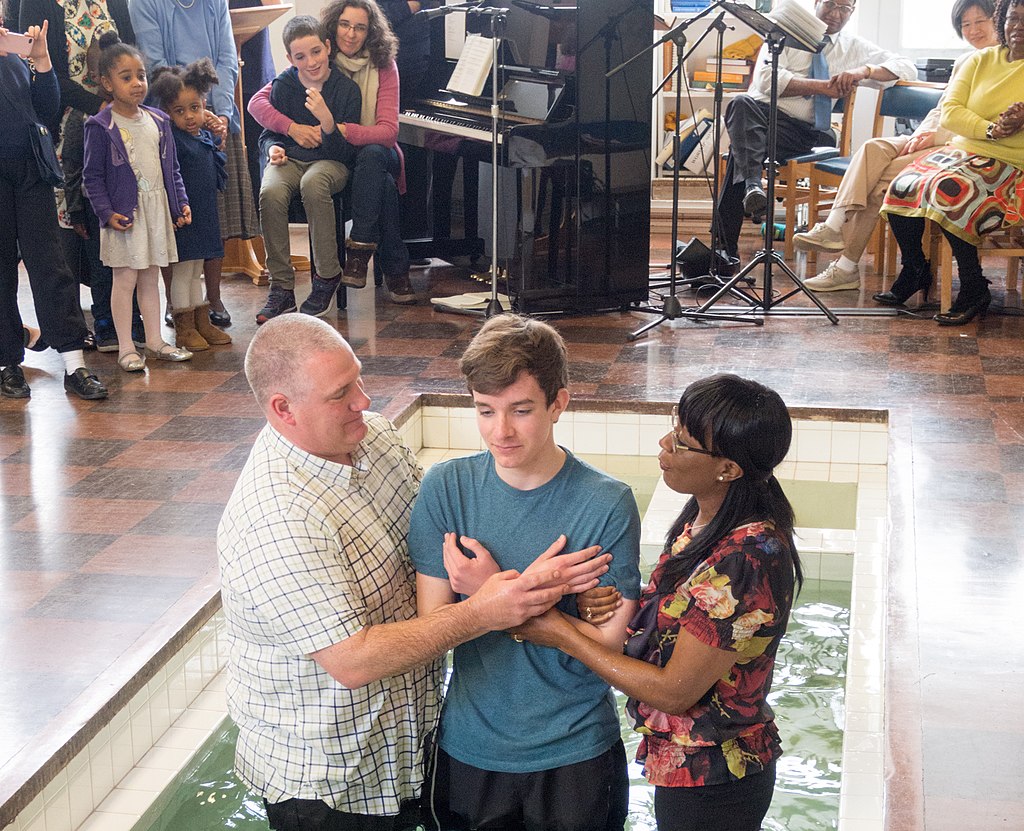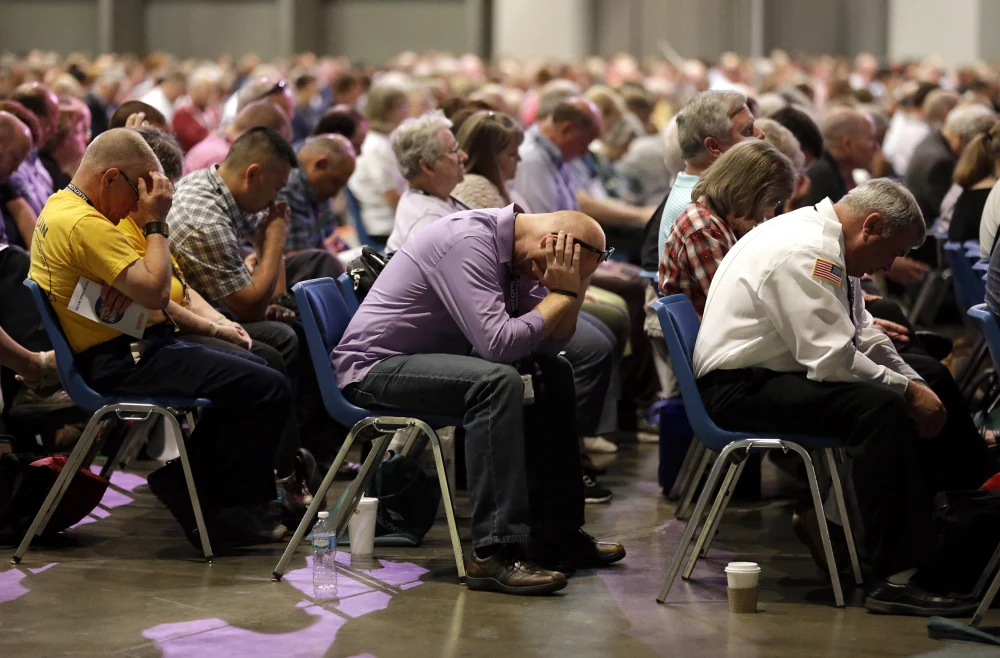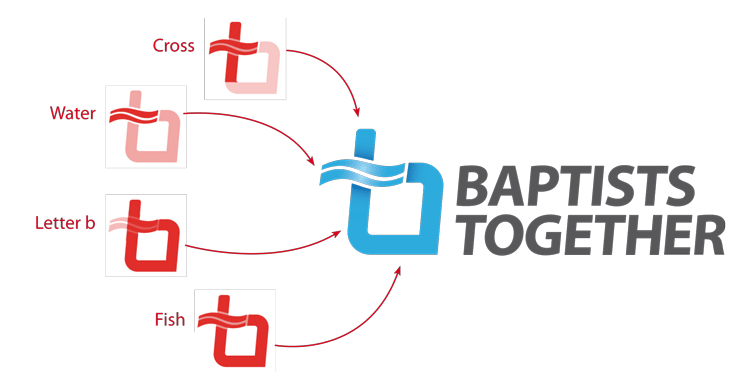Joining In
Being Part Of The Church


Who are Baptists?
As Baptists, we are part of the universal Church of Jesus Christ – but we have our own distinctive practices too.
Our name comes from our belief that baptism is for ‘believers’ not babies.
We baptise those who profess a personal faith in Christ, and we do this by ‘immersion’ in water – not sprinkling.
We also believe that each local Church (fellowship) is independent, and we do not have bishops or a ‘national’ Church.
The committed members of each local Church have full responsibility to support and finance its work.


About Church
God has always called people “from every tribe and language and people and nation” (Revelation 5:9) into a community with himself.
The church is the best and most enduring expression of that desire. Church is mentioned over 100 times in the New Testament, almost always meaning identifiable groups of geographically local believers.
Local churches are Jesus current focus.
They are the communities that he loves and lives with.
These local churches always consist of people.
A church is never a building or an organisation or a denominational or national church; it’s local except in a few instances where it means all believers in every place throughout time (the universal church).
The bible describes churches as a bride, body, temple, flock, family.
Churches are both precious and made up of people who are both intimately connected and mutually supportive.
The New Testament continually reminds Christians what to do to and for one another.
Churches are made up of people who are responsible for each other and accountable to one another; so much more satisfying than being on the membership roll!
We like to think about belonging to the church rather than “joining it;” joining in rather than signing up.

Joining In
If you are a Christian you have been joined into the universal church by Jesus who is the head of the church.
He also wants you to be part of a local church.
That is where “real-time” Christianity happens in the here and now. And membership of a local church requires something from you.
Being part of a local church means participation in the life of the church and relationships with others in the church.
We belong to a church by being a part of it and being a part of what it does.
When the New Testament pictures a local church as a body with Christ as the head it is stressing the uniqueness, interdependence and value of each person in the body.
We have a common life. In a local church you are supported and protected. If one part is missing or not working properly the whole body is affected.
Being part of a church is a big commitment, one that only a true Christian should undertake and that only a true disciple can fulfil.
Church membership is a long-term covenant relationship between people resolved to glorify Jesus Christ together.
It is a serious and consistent commitment to a cause that is greater than any of us.

Have you been born again as a Christian?
Do you trust Christ for forgiveness and have a new relationship with God?
You will already be talking about what has happened to you and asking others to explain this new life to you.
Are you submitting to the lordship of Jesus Christ?
If you trust Christ you will respect him and try to be the sort of person he wants.
You will want to please Jesus and are struggling to avoid things that offend or disrespect him.
That’s why you will want to follow his command to be baptised for instance.
Do you have confidence in the bible truths that we believe?
Even if you haven’t taken it all on board you feel an instinctive love for bible truth.
Will you support of our vision for our church?
You will already be gifting your prayers, time and money to support what the church is doing and joining in.
Playing your part is important to you.
Do you want to share your Christian life with us?
You are attending regularly to learn and worship with us, enjoying the company of the church, developing productive relationships and starting to feel responsible for others.
You feel that the church leaders are people you can trust and be accountable to.
If you find your values and hopes for church here then you are already part of Pier Avenue Baptist Church!
All that is left is for us to acknowledge the reality of your commitment.
We would like to do that openly by naming you amongst the church one Sunday soon.
F.A.Q.
Frequently Asked Questions
Who are Baptists?
Baptists are Christians who share the main beliefs of the whole Christian Church.
However, they have two main distinctions: the practice of “Believers’ Baptism”, in which adult believers are baptised by immersion; and the practice of congregational church government, in which the members of the local Church are its governing body (under the guidance of the Holy Spirit) – not a national Church or bishop.
Each local Church is autonomous and self-financing.
What about the world picture?
There are many millions of Baptists across the world. In the USA alone, there are huge numbers of Christians – and Baptists are among the most active and influential.
Presidents Carter and Clinton were both active members of Baptist Churches.
In Eastern Europe, as communism has declined and Christianity has spread, so Baptist churches have been planted in many cities and towns.
But the most growth has been seen in Africa and South America – particularly Brazil – as well as in parts of Asia, such as Sri Lanka, India and Thailand.
The Baptist Missionary Society, which our Church supports, works in many countries, providing teachers, health workers, engineers, pastors and evangelists wherever they are needed.
Where did ‘Baptist’ come from?
After the Reformation in Europe in the 16th Century, small groups of Christians in Holland and England began to meet (at first in each other’s homes) to study the Bible – now available in their own language for the first time – and to share simple worship services. The first English Baptist Churches were formed in the early 17th Century, and faced very real opposition and persecution from the state. When Cromwell and the puritans came to power in 1653, laws were relaxed and freedom to worship according to conscience became easier for a time.
However, Baptist numbers grew tremendously in the 18th Century at the time of the great revivals under Wesley and Whitfield; and again in Victorian England at the time of great preachers such as C H Spurgeon.
It is generally agreed that Baptist influence was at its height in the early days of the 20th Century, with both Gladstone and Lloyd George keen to consult with Baptist leaders.
Since the First World War, Baptist numbers in Britain have declined, as have all the main Christian denominations.
